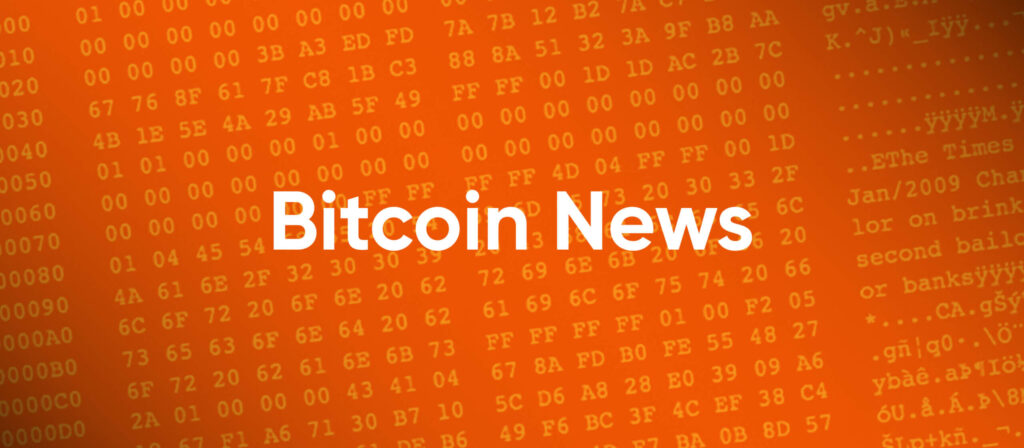Good morning, readers!
This week, we continue to witness the erosion of financial freedom and civil liberties worldwide.
In Kenya, thousands of young citizens protested new taxes and a bailout for the government, which continues to erode democracy. Thirty-nine people were killed. Meanwhile, Bolivia experienced an alleged coup attempt led by the former commander general of the military, which some suspect was orchestrated by President Luis Arce to boost his dwindling popularity amid severe financial hardships. In Burma, the military junta banned many virtual private networks (VPNs), following Internet shutdowns and a Bitcoin ban, effectively isolating the Burmese people from the rest of the world.
In open-source software news, recent updates for Bitcoin wallets integrated new on and off ramps, support for Bitcoin vouchers (as a way for users to access KYC-free Bitcoin), and stablecoins. OpenSats, a nonprofit supporting open-source software development, announced its latest round of grants targeting projects that enhance the Bitcoin user experience, improve security and hardware integration, and promote privacy and censorship resistance.
We conclude with the latest installment in the Freedom Tech Series by HRF and PubKey, where HRF’s Christian Keroles joined Faisal Al Mutar, founder of Ideas Beyond Borders, to discuss Bitcoin’s role in providing a financial lifeline in regions ravaged by decades-long warfare. We encourage you to take a moment to tune in to this conversation.
Now, let’s dive right in!
The Financial Freedom Report is a newsletter focusing on the role currency and banking play in the civil liberties and human rights struggles of those living under authoritarian regimes. We also spotlight new tools and applications that can help individuals protect their financial freedom.

Kenya | Protests Lead to Reversal of Tax Plan
Thousands of young Kenyans protested a new tax proposal by a desperate regime that would have bailed out the government while making life tougher for the average person. The proposal included a 2.75% income levy and increased taxes on essential items like vegetable oil and fuel. Law enforcement responded to these protests with tear gas, arrested more than 200 protesters, and killed 39 people. Ashley Mwai, a young Kenyan woman, voiced the frustrations of many: “Our parents have been taxed dry, yet there’s no development to show for it. We reject any additional taxes and will stay on the streets for as long as it takes.” Kenyan Bitcoin advocate Noelyne Sumba highlighted that the resistance to the tax proposal reflects deep-seated frustration stemming from decades of economic oppression and exploitation in the country. This is why she advocates for alternative financial solutions outside the control of governments, like Bitcoin, as a path to Kenyans’ financial independence. Kenyan President William Ruto ultimately reversed the proposed tax hikes, marking a short-term victory for the people of Kenya.
Burma | Bans Use of VPNs
Burma’s military junta banned the use of many virtual private networks (VPNs), including Nord and Psiphon. VPNs are crucial for bypassing digital censorship and ensuring secure and private access to social media, messages, and websites. This ban intensifies the regime’s existing practice of shutting down the Internet to cut off the Burmese people from the rest of the world and hinder their access to information and communication. It also restricts citizens’ ability to report ongoing human rights abuses and express dissent against the regime. This move follows a recent ban on trading and exchanging Bitcoin. Burmese citizens find themselves isolated from the rest of the world and subjected to repression — not just through the ban on VPNs but also through their inability to access global, neutral, and digital money.
Bolivia | “Attempted” Coup Amid Economic Distress
On June 26, armored vehicles led by the former commander general of the armed forces, Juan José Zúñiga, stormed the government palace in La Paz. This prompted President Luis Arce to declare a coup. International support quickly followed, with calls for the protection of constitutional order. Not everyone, however, believes this was an actual coup attempt, but rather a gambit to boost Arce’s popularity. One reason for the skepticism is that during his arrest, Zúñiga told the media that President Arce had ordered the military mobilization, detailing the numbers and types of vehicles to be used, “because he needed actions to boost his popularity.” Currently, 80% of Bolivia’s population disapproves of Arce’s government. Under his government, Bolivians face shortages of basic goods, while restrictions remain imposed on foreign currencies and Bitcoin.
Zambia | Plans to Introduce Restrictions on Foreign Currency
Zambia plans to introduce regulations restricting the use of foreign currency to combat growing inflation, which currently exceeds 15%. If implemented, these restrictions would force citizens to rely more on the kwacha, a local currency that has lost 28% of its value over the past year and is considered among the world’s worst-performing currencies. To protect their purchasing power in high-inflation environments, Zambians turn to more stable foreign currencies like the US dollar. By mandating the use of the rapidly depreciating kwacha and restricting the use of foreign currencies, the regime exacerbates the financial hardships that 20 million Zambians already endure. By preventing citizens from choosing a better kind of money, the government is imposing a cruel form of financial repression on the population.
Gaza | Bitcoin Donations Help Desperate Civilians
Palestinian taxi driver Yusef Mahmoud began using Bitcoin to buy critical resources for civilians trapped in war-torn Gaza. “Bank apps on our phones are down, and banks are freezing accounts in Gaza. We only have cash or Bitcoin,” Mahmoud said. He soon launched a project on Geyser, a global crowdfunding platform, to fund food, baby supplies, medicine, clothing, potable water, and tents for displaced civilians. Bitcoin donations from around the world, amounting to more than 260 million satoshis (roughly $146,000), empowered Mahmoud to care for more than 20,000 struggling families in Gaza. Mahmoud’s story is an excellent example of how Bitcoin facilitates borderless, global crowdfunding initiatives despite government-imposed financial restrictions, even, surprisingly, in war-torn places and conflict zones. With bank accounts routinely frozen, Hamas exerting complete control, and financial services consistently shuttered in Gaza, “You can see why more people over here are now using Bitcoin; there’s no other way,” Mahmoud explained.
Mali | Opposition Activists Arrested and Jailed
In Mali, the military junta arrested 11 opposition politicians during a meeting in a private residence and sent them to prison. The regime charged the opposition members with conspiracy, opposition to the government, and breach of public order, but it hasn’t tried them yet. “We denounce the crackdown on the opposition politicians in Mali, the dissolution of political parties, and the suspension of all political activities,” Amnesty International said. In addition to imprisonment without fair trials to tame the opposition, authorities have imposed financial repression on media outlets, particularly those critical of the government, freezing their bank accounts. It has also applied financial surveillance to civil society organizations. This has created a climate of self-censorship among media outlets and civil society organizations. The ongoing repression showcases the junta’s efforts to stifle any opposition and criticism by exerting control over the finances of these organizations.

Chamberlain | New Cashu Mint Implementation
A new mint implementation called Chamberlain has been released for Cashu, a Chaumian ecash protocol for Bitcoin that offers private, fast, and inexpensive payments, albeit with a custodial model. The Chamberlain project aims to increase the number of mints (entities that issue and manage ecash) running on the Cashu protocol. It also integrates with Lightning Nodes, enabling node runners to handle ecash transactions for friends and family more efficiently. Cashu mint implementations can enhance financial freedom for users by providing more mint options and reducing reliance on existing mints. By contributing to the ongoing decentralization of the Cashu ecosystem, Chamberlain helps promote greater innovation and resilience for Bitcoin-backed ecash. You can learn more about the implementation here.
Envoy Wallet | Integrates Bitcoin Exchange and Voucher Support
Envoy, a free and open-source Bitcoin mobile wallet and companion app for the Foundation Passport hardware wallet, launched version 1.7. With this update, users will be able to buy Bitcoin directly into their self-custodial wallet. The update also introduces support for Bitcoin vouchers from Azteco and BTCPay Server, allowing users to buy prepaid voucher codes with fiat currency and redeem them for Bitcoin, offering a more private method of self-custody. Additionally, users can now access tools to discover peer-to-peer exchanges and nearby Bitcoin ATMs, presenting various ways to buy and sell Bitcoin without disclosing personal information. Envoy’s functionalities could be crucial for citizens seeking to maintain their financial privacy and autonomy.
Lava | Releases Exchange and Stable Payments
Lava, a Bitcoin wallet, released Lava Free Pay and Lava Exchange, providing users easy access to stablecoins (digital assets pegged to fiat currencies such as the US dollar) and a new dedicated exchange service. Lava Free Pay integrates stablecoins into the wallet, a feature of key interest for individuals trapped under authoritarian regimes with collapsing currencies. Meanwhile, Lava Exchange lets users buy Bitcoin in the app and deposit it directly into self-custody. “Using your location and market data, Lava can connect you to the exchange that offers the best rates and lowest fees for your desired transactions,” Bitcoin Magazine reports. Lava’s stablecoin access, self-custody, and Bitcoin on/off ramp create an intriguing tool for citizens seeking a high degree of financial autonomy while allowing them to use their digital assets for day-to-day payments.
Blockstream Greenlight | Releases First Major Update
Greenlight, Blockstream’s non-custodial Lightning Network node service, released its first major update, advancing from v0.0.1 to v0.2. Greenlight enables Lightning Network integration for developers, while Blockstream manages infrastructure and end users remain in control of the keys. This release supports Core Lightning v24.02 (the underlying software of the Lightning Network), enhancing performance, capabilities, and feature diversity. Additionally, it introduces a new credentials Application Programming Interface (API) for easier user credential management and webhooks for real-time node availability monitoring. These improvements allow businesses, developers, and applications to harness the Lightning Network’s scalability and speed, all while ensuring users retain control over their funds. You can test out the new release here.
OpenSats | Announces Fifth Round of Bitcoin Grants
OpenSats, a public nonprofit funding free and open-source software and projects, announced its fifth wave of grants. This round of funding is being awarded to 10 projects, including Core Lightning Bookkeeper Dashboard, a user-friendly interface for managing Core Lightning; Cove, a mobile wallet designed for hardware devices; and the Fedimint On-Chain Gateway and RBF, aimed at enhancing mint efficiency. Other notable projects include Krux, an open-source firmware for Bitcoin signing devices, and the Validating Lightning Signer (VLS), which boosts Lightning Network Security. Through the support of these projects, OpenSats reaffirms its dedication to advancing financial freedom and open-source development in the Bitcoin ecosystem. HRF is happy to help support OpenSats’s administration work so that regular donations can be passed through 100% to developers. For more details on each of these projects and to consider supporting their mission, visit here.
Suriname Decentralized | Bitcoin and Nostr Conference
From November 7 to 8, advocates of financial freedom will convene in Paramaribo, Suriname (on the northeast coast of South America), for the inaugural Suriname Decentralized conference. The event will focus on how decentralized and open-source technologies, such as Bitcoin and Nostr, champion financial independence and create a brighter future for all. Bitcoin has become a critical tool for activists and marginalized groups by providing them with money that is resistant to both censorship and seizure and immune to high levels of inflation. Similarly, Nostr provides censorship-resistant communications, essential for citizens, journalists, and freedom fighters deplatformed from traditional media channels. The conference aims to demonstrate the practical applications of these technologies to empower attendees to reclaim their freedoms. More details about the conference are available here.
Recommended Content
HRF x Pubkey — How Bitcoin Helps Underground Education in the Middle East
In the latest installment of HRF and Pubkey’s Freedom Tech Series, Christian Keroles of HRF interviewed Faisal Al Mutar, founder of Ideas Beyond Borders, a nonprofit organization producing content to advance financial freedom and civil rights in the Middle East. Al Mutar explained in great detail how Bitcoin serves as a vital tool for circumventing financial crises and government censorship, citing specific examples such as educators in Lebanon who used Bitcoin to fund schools amidst banking restrictions. The conversation illustrates how Bitcoin provides resilience and security for communities ravaged by decades-long financial and political unrest. We highly encourage you to watch the full interview here.
Bitcoin as a Tool of Freedom — Featuring Stella Assange, HRF’s Arsh Molu, and Lyudmyla Kozlovska
The “Bitcoin as a Tool for Freedom” panel discussion at the Bitcoin Prague conference explored Bitcoin’s role in supporting human rights and allowing individuals to resist oppressive regimes. The panel featured human rights advocate and lawyer Stella Assange, HRF’s Arsh Molu, and Ukrainian activist and president of the Open Dialogue Foundation Lyudmyla Kozlovska. Assange shared insights into her husband Julian Assange’s legal battles and emphasized Bitcoin’s crucial role in sustaining WikiLeaks during financial blockades over a decade ago. Molu highlighted Bitcoin’s capacity to enforce financial freedom and empower dissidents in countries with strict financial censorship. Kozlovska explained Bitcoin’s importance for activists facing financial exclusion and repression in authoritarian regimes. The discussion served as a reminder that Bitcoin continues to be an important tool for financial freedom and human rights worldwide. You can watch the full panel here.
Bitcoin 2024 Conference | Apply for a Complimentary Open Source Contributor Ticket
HRF and BTC Inc. have partnered to offer complimentary passes to open-source software developers who have contributed to the Bitcoin ecosystem for the Bitcoin 2024 conference, scheduled to take place July 25–27 in Nashville, Tn. If you made a commit before May 1, 2024, we invite you to apply for our Open Source Contributor Complimentary Ticket Program to receive a complimentary three-day pass to the conference. To apply, fill out the Typeform application here, submit an issue to this repo, and explain why you are excited to attend. HRF and BTC Inc. will review submissions and send out e-tickets over the next month. We look forward to seeing you there.







